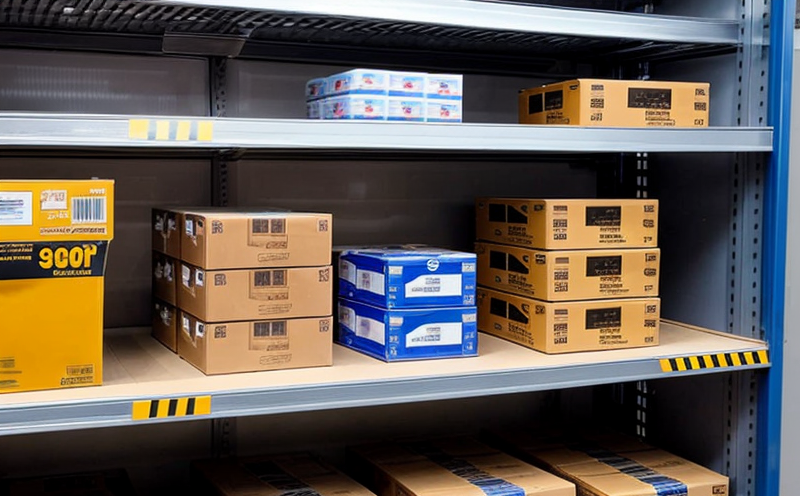Helium Mass Spectrometry CCI Testing
The Helium Mass Spectrometer Leak Detection (CCI) testing is a critical tool in ensuring that medical devices maintain their integrity and functionality throughout the shelf life. This method, often referred to as Continuous Compound Leak, detects even the smallest leaks by using helium—a noble gas—which does not react with other materials and has low solubility in most substances.
In a continuous compound leak test (CCI), a sample is pressurized with helium. Any leakage of this gas from within the sealed container is detected by measuring its presence on the outside surface of the package or device. The testing process ensures that packaging remains intact, preventing contamination and ensuring product integrity over time.
The Helium Mass Spectrometer is highly sensitive and can detect leaks as small as 1x10^-9 Pa·m³/s. This level of precision makes it an invaluable tool in the medical device industry where even minor breaches could lead to significant safety concerns.
For R&D engineers, this testing method provides critical insights into potential design flaws that might otherwise go undetected during initial stages of development. Quality managers and compliance officers benefit from this technology by ensuring adherence to regulatory standards such as ISO 11607-3.
During the test, a sample is placed in a vacuum chamber and pressurized with helium at a controlled rate. The pressure inside the container is then monitored over time to detect any loss of helium indicative of a leak. Once completed successfully, the device can be released for further processing or distribution.
For procurement teams, this testing ensures that purchased components meet stringent quality control requirements before being integrated into larger assemblies. This step helps maintain consistency in product quality across various suppliers and batch numbers.
The Helium Mass Spectrometer offers several advantages over other methods of leak detection including its non-invasive nature, high sensitivity, repeatability, and ability to test complex geometries without altering the integrity of the sample.
Applied Standards
| Standard | Description |
|---|---|
| ISO 11607-3 | Establishes requirements for the testing and validation of sterilization processes. |
| ASTM D3985 | Specifies a method for determining the leakage rate from containers using helium as a tracer gas. |
| EN 12674 | Defines the requirements and methods for testing packaging systems for medical devices. |
| IEC 62305-1 | Provides guidelines on the protection against lightning in low voltage systems, which can be relevant for testing. |
| ASTM D4712 | Describes test methods to determine the resistance of a container or package to gas leakage by helium permeation. |
| ISO 15811-4 | Details the requirements for leak testing of medical devices using helium as a tracer gas. |
| ASTM D7265 | Outlines procedures to determine the resistance of containers or packages to gas permeation by helium. |
| ASTM D4712 | Describes test methods for determining the resistance of a container or package to gas leakage using helium permeation. |
Environmental and Sustainability Contributions
The Helium Mass Spectrometry CCI testing not only ensures product integrity but also plays a role in environmental sustainability. By detecting leaks early, it helps prevent the release of potentially harmful substances into the environment. This is particularly important for medical devices which are often made from biodegradable or recyclable materials.
With continuous advancements in technology and increased awareness about sustainable practices, companies are under pressure to adopt eco-friendly manufacturing processes. Helium Mass Spectrometry CCI testing supports this initiative by ensuring that only fully functional products reach the market, thereby reducing waste generation and promoting recycling efforts.
The precision of helium detection allows manufacturers to optimize their production lines, minimizing material usage while maintaining product quality. This approach contributes positively towards reducing carbon footprints associated with manufacturing and distribution processes.
Competitive Advantage and Market Impact
In a highly competitive market where reliability and trust are paramount, the Helium Mass Spectrometry CCI testing provides a significant edge. It enhances customer confidence by ensuring that every unit meets stringent quality standards before being released for sale.
The ability to detect leaks early in the production process reduces rework costs and improves overall efficiency. This translates into faster time-to-market for new products, allowing companies to capture market share more effectively.
From a regulatory perspective, compliance with relevant international standards such as ISO 11607-3 not only ensures legal adherence but also builds credibility among stakeholders. This can lead to better relationships with distributors and end-users, fostering long-term partnerships.





